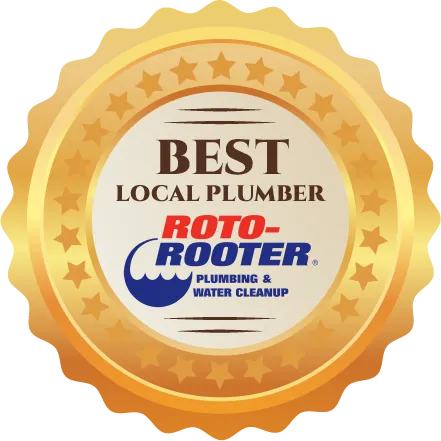How Often to Schedule Drain Cleaning in St. George
In St. George, determining how often to schedule drain cleaning varies based on specific local factors. The area’s hard water is a significant contributor to mineral buildup in pipes, which can lead to blockages. Additionally, St. George’s arid climate often results in dust accumulation that can enter drains, causing further complications. Household size and the age of your plumbing system also play crucial roles. Families with more members may experience quicker buildup due to increased usage. Older plumbing systems might require more frequent attention to prevent issues arising from wear and tear. By considering these St. George-specific challenges, you can better decide on a suitable schedule to keep your drains in optimal condition.
Understanding Your Plumbing System
Understanding your plumbing system is essential before scheduling regular drain cleaning, especially if you live in areas like the northeastern United States where older homes are common. Many of these homes have aging plumbing systems, which might require more frequent maintenance due to potential buildup, corrosion, or even root intrusion from trees.
Familiarize yourself with the materials used in your plumbing, as certain types, like the cast iron found in many historic homes, might be more prone to clogs over time. In regions with hard water, such as parts of the Midwest, mineral deposits can also contribute to blockages, necessitating more frequent cleaning.
Pay attention to any signs of slow drains or recurring blockages, as these can indicate underlying issues specific to your area’s plumbing challenges.
Keep a record of past plumbing work, which can guide you in determining the frequency of cleaning needed based on local conditions. By understanding your system’s condition and history in the context of your location, you’ll make informed decisions that prevent costly repairs and maintain efficiency.
Evaluating Household Usage
After gaining an understanding of your plumbing system, it’s crucial to consider how local factors influence the frequency of drain cleaning in your home.
For instance, in coastal areas, the high humidity can exacerbate rust and corrosion issues, potentially affecting your pipes. In regions with hard water, mineral deposits could lead to frequent blockages, necessitating more regular maintenance.
The number of people in your household also plays a significant role; a larger family typically requires more frequent cleaning.
Consider your daily habits—do you often prepare meals that result in greasy pans, particularly in areas known for their fried cuisines? Are long showers common, especially in colder climates where hot showers are a daily indulgence, leading to hair and soap residue buildup? These activities can contribute to drain blockages.
Be mindful of any unusual items that might make their way into your drains, such as coffee grounds, which are a common issue in areas with a strong coffee culture, or fibrous vegetables common in local diets.
If you regularly entertain guests, particularly during local festivals or events, your plumbing might experience increased strain.
Recognizing Signs of Clogged Drains
Clogged drains can quickly become a homeowner’s nightmare if left unaddressed. In areas with hard water, such as the southwestern United States, mineral deposits can build up and contribute to blockages more frequently.
You need to recognize the warning signs to prevent bigger issues. First, pay attention to slow draining sinks or bathtubs. If water lingers longer than usual, it’s a red flag. Listen for gurgling sounds when water drains, as these noises often indicate air trapped by blockages.
In coastal regions with older plumbing systems, like those found in some parts of New England, saltwater corrosion can exacerbate drainage problems. Notice unpleasant odors coming from drains; foul smells can suggest accumulated debris or bacteria.
High humidity areas, such as the southeastern United States, can lead to the growth of mold and mildew within pipes, adding to clogs. Watch for water backups, especially in lower fixtures like toilets or floor drains.
Finally, recurring clogs, even after attempting to clear them, mean deeper issues might exist. Spotting these signs early helps you address problems before they escalate into costly repairs. Keep your eyes and ears open to maintain healthy drains tailored to your specific regional challenges.
Seasonal Considerations for Drain Cleaning
Once you’ve spotted those early signs of trouble, timing becomes key to effective drain maintenance.
Each season in St. George, Utah, can bring unique challenges to your plumbing. In the spring, melting snow from the nearby Pine Valley Mountains and increased rainfall can put extra pressure on your drains, so scheduling a cleaning can prevent clogs.
The summer’s high temperatures in the region might cause your pipes to expand, making it easier for blockages to form, so keep an eye on them.
Autumn in St. George brings falling leaves from the many trees lining residential areas, which can find their way into outdoor drains and lead to blockages.
Winter’s cooler temperatures can cause grease to harden faster in pipes, increasing the risk of clogs.
Regular seasonal maintenance helps prevent these issues, ensuring your drains function smoothly year-round.
Professional Drain Cleaning vs. DIY Methods
When considering how best to maintain your drains in urban environments such as New York City, it’s important to weigh the benefits of professional drain cleaning against DIY methods.
In densely populated areas, older plumbing systems are common, and professionals bring expertise, advanced tools, and can diagnose underlying issues, preventing costly repairs. They’re efficient, often offering guarantees on their work, which is crucial in cities with strict building codes and regulations.
On the other hand, DIY methods can save money upfront. With household items like vinegar and baking soda, you can tackle minor clogs and maintenance.
However, urban infrastructure often means complex drainage networks, and DIY efforts mightn’t address deeper blockages or recurring issues. There’s also a risk of damaging pipes if not done correctly, especially in older buildings with fragile systems.
While DIY can be effective for simple tasks, a professional service provides peace of mind and long-term solutions, particularly in metropolitan areas where plumbing issues can quickly escalate.
Ultimately, the choice depends on your comfort level, the complexity of the issue, and budget considerations, but in cities like New York, professional services can often be the more reliable choice.
Expert Recommendations for Routine Maintenance
In areas with hard water, such as the southwestern United States, scheduling routine drain maintenance is particularly crucial due to the mineral buildup that can occur in pipes. Hard water can lead to limescale deposits, which might exacerbate clogs and reduce water flow.
Experts in these regions recommend having your drains professionally cleaned at least once a year to prevent these issues. This frequency helps you avoid clogs, unpleasant odors, and potential damage to your plumbing system, ensuring that your drains function efficiently and prolonging the lifespan of your pipes.
In addition to annual cleanings, it’s essential to be proactive about any warning signs. Residents in coastal areas, for instance, might experience corrosion due to the salty air, which can affect the integrity of their plumbing systems.
If you notice slow drainage, gurgling sounds, or unpleasant smells, it’s time to act. Don’t wait until a major issue arises. By sticking to a routine, you’re not just maintaining your drains; you’re safeguarding your home’s plumbing health and avoiding costly repairs in the long run.
Prioritize your peace of mind with regular maintenance tailored to your local environmental conditions.
Choosing the Right Drain Cleaning Service in St. George
How do you choose the best drain cleaning service in St. George? Start by checking reviews online. Look for companies with high ratings and positive feedback. Don’t forget to ask for recommendations from friends or family.
Experience matters, so pick a service with a solid track record in the area, especially since the unique soil composition and hard water in St. George can lead to more frequent drainage issues.
Next, ensure they offer extensive services, such as inspections and emergency repairs, which are crucial given the area’s occasional flash floods that can exacerbate drainage problems.
Verify their licensing and insurance to protect yourself from liability, particularly because of the potential for water damage in this region. Price transparency is vital—request written estimates to compare costs without hidden fees.
Communication is key, so choose a company that’s responsive and willing to answer your questions.
Finally, confirm they use up-to-date equipment and techniques for effective cleaning, considering the specific challenges posed by St. George’s climate and terrain.
Conclusion
In St. George, scheduling regular drain cleaning is crucial for maintaining your plumbing system, especially given the region’s unique challenges. The area’s hard water can lead to mineral buildup, which may cause clogs over time. Additionally, the desert climate can result in debris accumulation in outdoor drains. Consider factors like your household size, the age of your plumbing, and water quality when determining your cleaning schedule. Be vigilant for signs of clogs, and don’t overlook seasonal maintenance during the spring and autumn months. Although DIY methods might seem appealing, professional cleaning ensures thoroughness and longevity. Follow expert recommendations to keep your drains clear and flowing smoothly. Choose a reliable local service to address your needs and enjoy peace of mind throughout the year.
Tags





